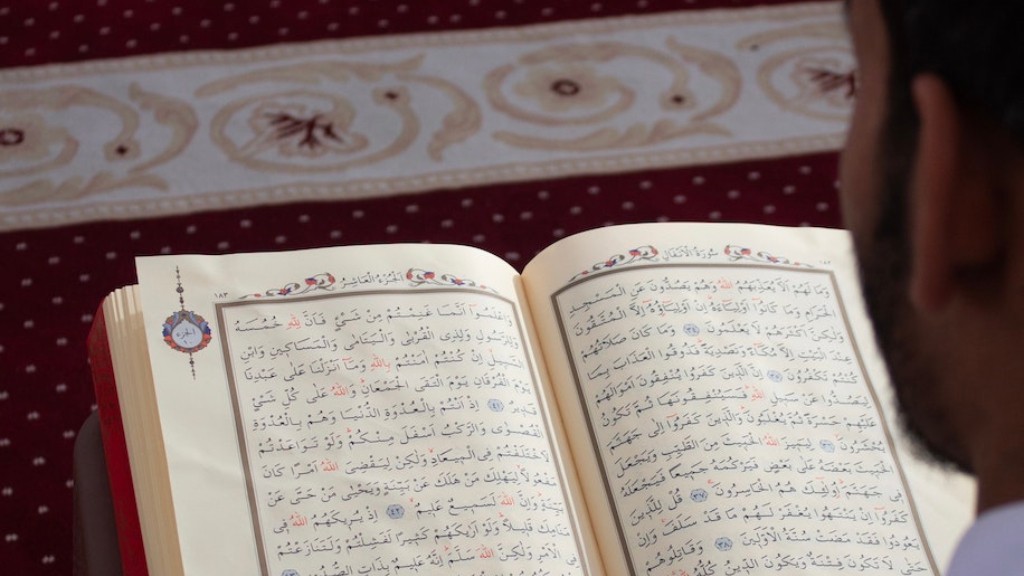Christianity is one of the oldest and most widely practiced religions in the world today. It is estimated that about one-third of the world’s population identifies as Christian, and a large percentage of this population is concentrated in Africa. Although Christianity is seen in countries all around the world, its spread in Africa stands out from the rest due to certain events and factors.
In order to understand how Christianity spread in Africa, it is important to discuss the historical and cultural events that surrounded the development of the religion. Christianity entered the African continent early in its existence, as one of the first Christian missionaries to arrive in Africa was St. Mark the Apostle, who is known to have preached in Alexandria and other parts of Egypt. Over the years, Christianity spread to other areas, such as Ethiopia and Eritrea, where it was eventually adopted by the Ethiopian Orthodox Church and the Eritrean Orthodox Church.
The spread of Christianity in Africa was heavily influenced by European missionaries, who arrived on the continent in the 16th century and began to spread the religion by converting indigenous Africans. European expansion and the development of the transatlantic slave trade also played a role in the spread of Christianity, as many slaves were converted to the religion during their time in captivity. 19th century European colonization of Africa further contributed to the spread of Christianity throughout the continent.
In addition to European initiatives, the growth of Christianity in Africa was also aided by local efforts. African political leaders, such as kings and priests, often helped to spread Christianity, endorsing it as a religion for their people and integrating it into their culture. Local African religions were also influenced by Christianity, as many elements from Christian beliefs were blended into existing African religions.
Today, Christianity is the most widely practiced religion in Africa, with more than 500 million adherents. Catholicism is the most popular denomination of Christianity in Africa, followed by Protestantism and Orthodox Christianity. Christianity has become so deeply rooted in African society that it has become an integral part of African culture and influencing African art, music, and literature.
Trends in African Christianity
Despite the rapid spread of Christianity in Africa, the continent is still undergoing changes in regards to its religious practices. Over the past few decades, the growth of Pentecostal churches has had a significant impact on African Christianity. Pentecostalism emphasizes spiritual experience and is typically more conservative than traditional Christianity. It is estimated that as many as one-third of all Christians in Africa today are members of Pentecostal churches.
Another trend in African Christianity is the movement towards a more active style of worship. In some regions, churches have evolved from a static, lecture-style gathering to a more dynamic and interactive style of congregational worship. In addition, many African churches also now emphasize charitable acts and social justice, in an effort to make Christianity more relevant to their communities.
African Christianity is also beginning to branch out from traditional mission-based churches. Charismatic churches, which focus on the Holy Spirit and emphasize the supernatural, are quickly becoming popular throughout the continent. African Christianity is also beginning to incorporate elements of local culture, such as traditional music, dance, and storytelling, into its worship practices.
Christianity’s Impact On African Society
Christianity has had a massive impact on African society, influencing areas from politics to education. In many African countries, Christianity has been integral in the establishment of democracy, rule of law, and human rights. The church has been actively involved in advocating for more just and equitable societies and has been at the forefront of the struggle for social and economic change.
In addition, Christianity has helped to shape the education system in many African countries. Christianity as a moral foundation has provided the basis for the education of children, as well as the establishment of universities and other institutions of higher learning. Christian education has also helped to spread social values, such as democracy and human rights, throughout the continent.
Christianity has also impacted African art and culture. Many African Christians have blended their traditional beliefs with Christian beliefs, creating a unique blend of both religions. This blend is evident in many African art forms and music, which often focus on the themes of faith, love, and hope.
Christianity and Economic Development
The spread of Christianity has also had a profound effect on economic development in Africa. Christianity has helped to create a strong, supportive community in many areas, which has fostered economic growth. In addition, the church has often been at the forefront of poverty reduction initiatives, creating jobs and providing assistance to those in need.
The church has also actively engaged with governments, promoting policies that help to boost economic development and reduce poverty. Christian organizations have also been involved in microfinance initiatives, which have helped many of Africa’s entrepreneurs to start and grow their own businesses.
The Future of Christianity in Africa
It is clear that Christianity has had an immense impact on the development of Africa and its people. Despite this, there are still challenges that need to be faced in regards to the spread and acceptance of Christianity across the continent. Discrimination against Christians has been an issue in some areas, as well as a lack of access to education and resources for those who follow the religion.
Nevertheless, the future of Christianity in Africa looks bright. The church will continue to be an important part of African society, offering support and guidance to its people. With the help of African Christians, the Christian faith will continue to thrive and spread throughout the continent.
Christianity In The Digital Age
The spread of Christianity in Africa has also been helped by the rise of the internet and social media. Christian organizations, churches, and individuals are now able to use the internet to spread the gospel and teach others about the faith. Churches have been able to reach out to potential members despite physical limitations, while social media has made it easier to organize events and reach out to new communities.
In addition, Christian organizations are now able to use social media to organize and promote charitable initiatives, raising awareness of their cause and rallying supporters across the continent. Digital technology has also enabled African organizations to communicate with their members more quickly and efficiently, as well as to stay connected with churches and organizations elsewhere in the world.
African Christian Art
African Christian art has become increasingly popular in recent years, with many African Christians using the medium to express their faith. African Christian art often combines traditional African themes and symbols with Christian symbolism, creating visually stunning and emotionally powerful works of art.
Christian art has been used for a variety of purposes, from promoting the faith to providing comfort and solace in times of distress. African Christian artists often use their work to provide hope and healing to their communities and to tell stories of faith, love, and redemption.
Conclusion
The spread of Christianity in Africa has had a profound impact on the continent, affecting everything from politics and economics to culture and art. Despite the obstacles that it has faced, Christianity will continue to be a major part of African society. With the help of African Christians, the Christian faith will remain a force for good in the continent for many years to come.



